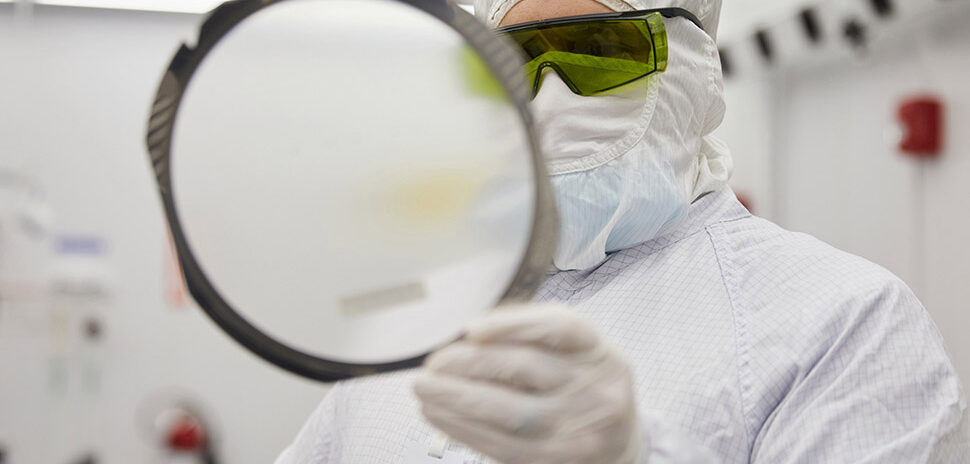Dallas-based Taysha Gene Therapies is starting a new chapter in its fight to tackle devastating neurological conditions with changes in its top executive leadership.
Late Friday, the publicly traded biotech announced that Sean P. Nolan, the current chair of the board of directors and an experienced biopharmaceutical industry leader, is the company’s new CEO. Nolan succeeds RA Session II, who has resigned from the post. Session will continue to serve on the company’s board of directors, Taysha said in a news release.
In addition, Sukumar (Suku) Nagendran M.D., a seasoned physician, pharmaceutical developer, and biotech executive was named president and head of R&D.
Both moves are effective immediately.
“2023 is a crucial year for Taysha, and it’s imperative that we precisely execute as an organization on delivering key clinical and regulatory milestones as we endeavor to bring transformative therapies to patients and families suffering from devastating diseases,” Nolan said in a statement.
The early-stage biotech company focuses on developing and commercializing gene therapies for the treatment of central nervous system diseases that are caused by a variation in a single gene, also known as monogenic.
Five months in 2020: From stealth to IPO
Taysha initially emerged from stealth in April 2020 with a $30 million Series A funding round and a strategic partnership with UT Southwestern. The company launched with a pipeline of 15 adeno-associated virus gene therapy programs, along with options to four others. In total, Taysha collected some $125 million in Series A and B funding in 2020, followed by a September IPO. Taysha is registered under the ticker NASDAQ:TSHA.
Taysha narrowed its focus to its therapies for Rett syndrome (TSHA-102) and giant axonal neuropathy (TSHA-120). The former is in clinical development and the latter is in Phase 1 and 2 development. Each has received rare pediatric disease and orphan drug designations. The move came amid financial headwinds and a staff reduction in an effort to extend Taysha’s runway.
Taysha lands $50 million investment from Astellas Pharma
This year, in October, the company landed a $50 million investment from Japanese pharmaceutical company Astellas Pharma to advance its therapies aimed at Rett syndrome and giant axonal neuropathy. Astellas took a 15% stake and other options, according to SEC documents.
Taysha’s Q3 report says the investment from Astellas Pharma “validates Taysha’s scientific approach and capabilities as well as reinforces therapeutic and market opportunity of two lead programs.” The company anticipated a “regulatory pathway for TSHA-120 in GAN in January following our Type B end-of-Phase 2 meeting with the FDA,” according to former CEO Sessions. In first of half 2023, the company also plans to disclose early clinical data for TSHA-102 from its first cohort of adult patients with Rett syndrome and initiate a Phase 1/2 trial for TSHA-102 in female pediatric patients with Rett syndrome, he said.
Nolan aims to expedite progress, strengthen strategic partnership
CEO Nolan said it’s a “dynamic time” in the company’s journey, and he’s ready to “expedite progress on our two lead clinical programs in Giant Axonal Neuropathy (GAN) and Rett syndrome, as well as further strengthen our strategic partnership with Astellas.”
R&D chief Nagendran will work closely with Dr. Suyash Prasad and the clinical team to further advance the biotech’s lead programs in GAN and Rett syndrome.
Taysha expects to host an investor call in mid-January after final minutes from its FDA Type-B meeting on GAN are available to discuss, according to a news release.
Former AveXis execs bring a combined six decades of experience
Nolan, who has more than three decades in biopharma, was formerly CEO of gene therapy company AveXis Inc., prior to its acquisition by Novartis. Nolan’s time at AveXis saw a dramatic transformation, taking the company to a global operation with research, clinical trials and commercial operations—culminating with an initial public offering.
He previously served as chief business officer at InterMune, chief commercial officer of Reata Pharmaceuticals and Ovation Pharmaceuticals, and president of the Lundbeck affiliate in the United States.Nolan is now the executive chairman of Jaguar Gene Therapy, and is on the boards of Encoded Therapeutics, Itsari Oncology, Ventas, as well as Taysha Gene Therapies.
Nagendran also brings more than three decades of experience. The R&D chief centers on key functional areas, such as the development of gene therapies, clinical development strategies, medical affairs, and diagnostics. He was formerly the chief medical officer and president of R&D for Jaguar Gene Therapy. Prior to this, Dr. Nagendran was the chief medical officer and senior vice president at AveXis before its acquisition by Novartis.
Nagendran has also held senior management positions at Quest Diagnostics, Pfizer, Novartis, Daiichi Sankyo, and Reata Pharmaceuticals. Prior to transitioning into biotech, he practiced internal medicine, focusing on diabetes and cardiovascular diseases.
Nagendran is currently a member of the board of directors for SalioGen Therapeutics, Solid Biosciences, Cove, Medocity, Project Healthy Minds, and Taysha Gene Therapy.
![]()
Get on the list.
Dallas Innovates, every day.
Sign up to keep your eye on what’s new and next in Dallas-Fort Worth, every day.

![R.A. Session II, president, CEO, and founder of Taysha Gene Therapies [Background image: Olena Yepifanova via iStock]](https://s24806.pcdn.co/wp-content/uploads/2020/04/TayshaGene-Session-970-1.jpg)

























